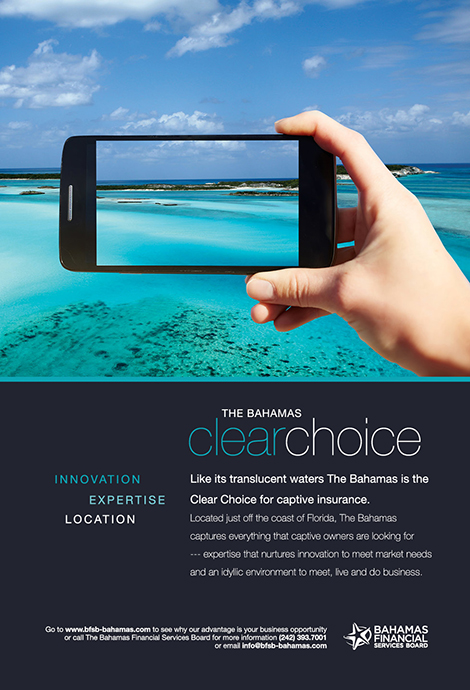Nevada Division of Insurance
Nevada is watching captive changes at the NAIC closely, says Michael Lynch
How has Nevada’s captive insurance industry developed over the years, and where does it stand now?
Nevada has been doing captives since 1999, so we are one of the older US domiciles. We also, thankfully, have quite a progressive corporate statute on our side.
In the US, each domicile has its own secretary of state who deals with the business matters. In Nevada, we have a very pro-business system that allows corporations to form in a single day.
The synergy between the secretary of state’s office and our own has been a great benefit to forming new companies in an efficient way.
Neveda initially, during the early 2000s, focused on pure captives, though we introduced a couple of agency captives and then eventually risk retention groups. We are the currently the biggest RRG domicile outside of Vermont.
In 2005, Neveda attached the series limited liability company (LLC) structure to the language of our state statutes. This bred a renaissance for captives. Whether it was pure captives or segregated cell programmes being formed, they could now pair with the series LLC formation.
This gave a lot of diversity and flexibility in the structure and allowed them to meet a lot of needs. Since then it really has been quite a boom, and it is still these types of formations that are our biggest growth sector.
We still do pure captives, too. In December 2013, we closed out the year with 30 new captives—with 18 closed in September alone. The majority of these new entities were either pure captives or sponsored cell programmes.
Is it the speed of Nevada’s captive formation that is its greatest advantage?
We can do pure captives in a day, and this undoubtedly sets us apart from other domiciles.
On the other hand, I think our biggest selling point is the staff that we have available. We have a fully accredited property and catastrophe actuary, financial experts, and we have experts who can help with investment questions.
This means that, in the formation stage when they are doing their feasibility analysis, prospective clients can bounce ideas off of our reinsurance experts and us as well.
We can provide information and coaching as to what might be the best possible solution for a client.
I believe our state is probably the most progressive in terms of making these experts available. There is no charge—the managers and clients can call us every day and they do, if only to go through ideas and brainstorm.
Our staff take great pleasure in helping people to get from the ideas stage to a certificate of authority.
What is of concern for Nevada’s captive industry in terms of upcoming regulatory changes?
The only things that are coming up for us are the same National Association of Insurance Commisioners (NAIC) accreditation standards that happen every year, in every US domicile.
We are certainly watching the developments of the definition of a multi-state insurer being expanded to include a great deal of other things beyond what, I think, was the original intent of the proposed language.
Nevada, with all the other captive domiciles, is watching the situation very closely. At present, we are simply preparing our written comments to present to the NAIC.
It is hard to say which way this decision will go, but I can tell you that we are not contemplating any changes to our statues and I do not see any major changes coming up in the next year.
To be honest, I do not even think people are forming up on the sides of pro and con. Ideas have been put out there and part of the reason for this was to address the problem of captive reinsurers that were affiliated with the big, traditional life insurance companies—whether they were based in the US or offshore.
We also regulate traditional insurers, and I think that most other domiciles will agree with us that there needs to be a little more guidance and transparency to the financial reporting of the AXXX and XXX reinsurers.
What that situation has done is open the door for the more anti-captive states to try and put things in the legislation that will, in effect, over-regulate the captives themselves.
Nevada is supportive of its captive industry, but we also support responsible regulation. I cannot really say whether we are for or against the changes, but I can say that we feel very strongly about, what we feel, will be the best course of action.
So would you say that your department has a good working relationship with the NAIC?
I would definitely say it’s a good working relationship. The NAIC, in a lot of ways, works for us—they help provide resources and education for a start.
They have to deal with a lot of different issues and captives are just a small part of that.
From 2012 to now, the main focus of almost all the insurance commissioners and the NAIC is the implementation Patient Protection and Affordable Care Act (PPACA). As a result of this overarching issue, I think many of the other captive-related issues could be taking a back seat.
Are the wider US regulations, such as the Dodd-Frank reforms, of concern for Nevada?
While there was a little bit of concern, due to some of the definitions coming out of US Dodd-Frank Act being misconstrued, I think all of those issue have now been put to bed.
We are not seeing any other state, federal or insurance offices coming out and trying to expand that rule, so I think things look pretty good now in that respect.
In terms of the next 18 months, what are Nevada’s projections for captive industry growth?
Last year was one of our biggest for a while and I think that is because there are so many more states now that are promoting these types of captive programmes.
In other words, because the general awareness about captives has increased on a national level, the frequency of those interested has increased, too.
We are receiving a lot more calls and seeing more insurance providers come to Nevada that want to get approved, and this tends to lead to more applications.
I firmly believe that the tide is rising for all the captive domiciles, and the State of Nevada is no exception.





